


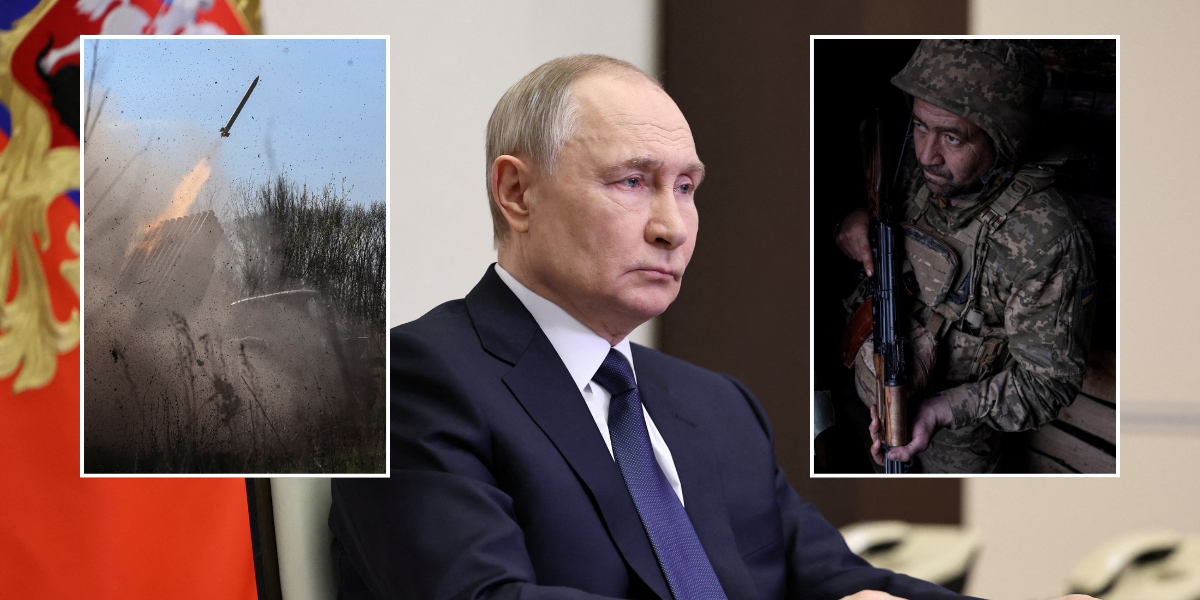
When Vladimir Putin launched his full-scale invasion of Ukraine in February 2022, the shockwaves were immediate - not just across battlefields, but through decades of diplomatic ties between Moscow and the West.
More than 1,100 days later, the war has ground into a brutal stalemate, exacting a staggering toll on Russia’s population.
British Defence Intelligence estimates, as of April 14, suggest the Russian Armed Forces have likely suffered up to 920,000 casualties — killed or wounded — since the war began.
Still, the Kremlin shows no signs of backing down. Earlier this week, spokesman Dmitry Peskov insisted Russia’s aims “must be achieved,” even as he claimed Moscow would prefer to reach them peacefully.
However, certainty about the number of the dead is hard to verify. Associate editor of The Spectator Owen Matthews told GB News: "Nobody knows and we won't know until long after the end of the war."
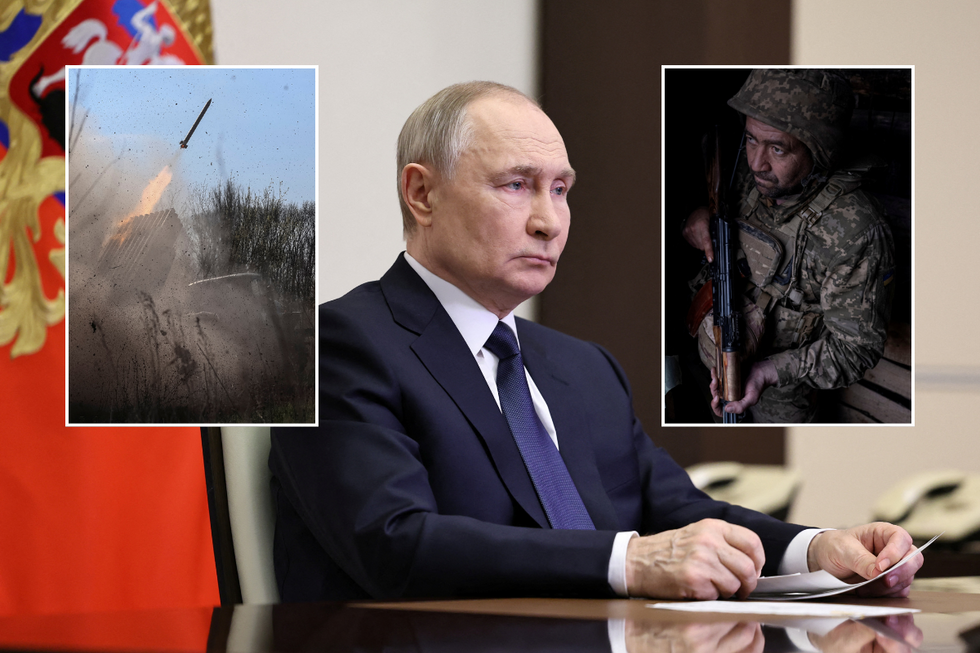
Russia has been facing heavy losses in the war
Reuters/Getty
The true death toll of Russia’s war in Ukraine remains elusive — obscured by propaganda, battlefield chaos, and a tight-lipped Kremlin.
Yet the mounting human cost is impossible to ignore. Even US President Donald Trump appeared to bristle at the scale of the carnage, taking to social media: “Vladimir, Stop! 5,000 soldiers a week are dying. Let’s get the peace deal done!”
While casualty figures vary, one point garners near-universal agreement among military analysts: Russia is haemorrhaging troops at a far higher rate than Ukraine.
A grim tally by BBC Russia and local media outlets has confirmed the names of over 100,000 Russian soldiers killed — a figure many believe is still only a fraction of the true total.
Each day, Ukraine’s Armed Forces General Staff publishes their daily estimates of Russia’s troop losses, which, as of May 2, stands at 954,300. This does not separate deaths from those who are wounded and the General Staff has not disclosed how this figure is collected.
If Ukrainian intelligence is to be believed, the figures suggest that with more than 1,000 losses per day, the conflict is less than 50 days away from passing the grim milestone of 1 million Russian casualties.
In January, the Biden administration in Washington said that Russia had suffered more than 700,000 casualties, combining both deaths and injuries.
On February 16, President Volodymyr Zelensky said that over 46,000 Ukrainian soldiers had died on the battlefield since February 2022. However, confidential sources cited by the Wall Street Journal in September put the number higher, at around 80,000. Kyiv has pushed back on this estimate.
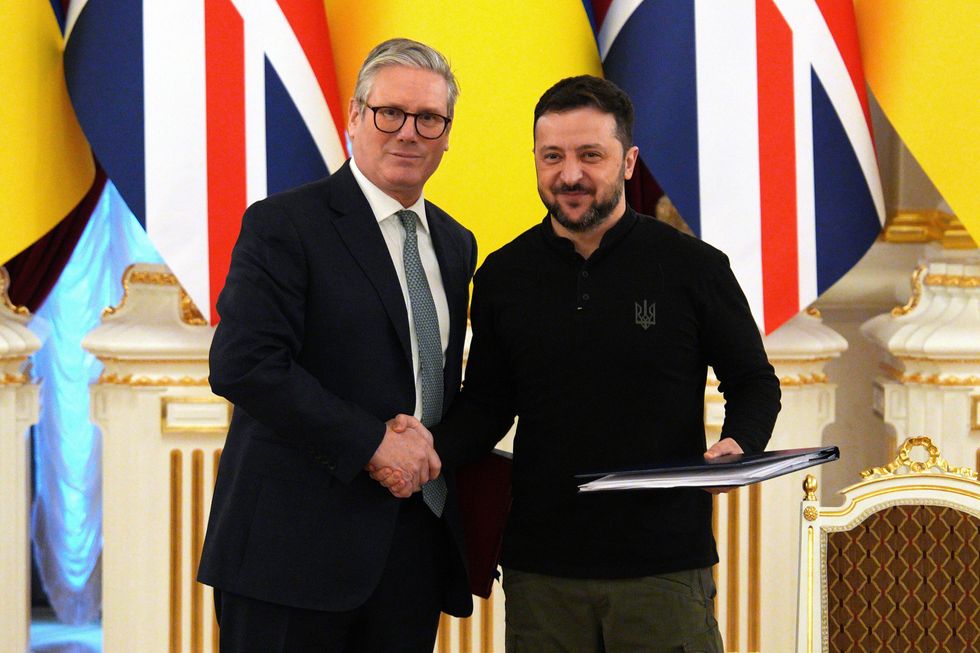 Sir Keir Starmer alongside Volodymyr ZelenskyPA
Sir Keir Starmer alongside Volodymyr ZelenskyPA
"It's difficult to contextualise the scale of Russian loses during its devastating reinvasion of Ukraine," Rob Clarke from the Yorktown Institute told GB News.
The former British Army Officer said Russian forces are most likely to have lost well in excess of ten times the number of losses the Soviet Union suffered in Afghanistan four decades ago.
He said: "This sheer amount of losses will be having a demonstrably catastrophic affect upon Russia's economy, society, and indeed future generations as an entire generation of predominantly child-baring young men have been slaughtered for nothing more than Putin's own insatiable ego - which appears to have little appetite to slow or end despite these losses."
Clarke, director of Defence and Security at Civitas, also took aim at the inaction of the United States, adding: "A fragmented Europe still fails to reach consensus on how best to deter Russia while protecting Ukraine.
"Meanwhile, an increasingly frustrated and disinterested Washington watches on. One thing is certain however: Russia can not simply be bled dry, as was the initial optimism."
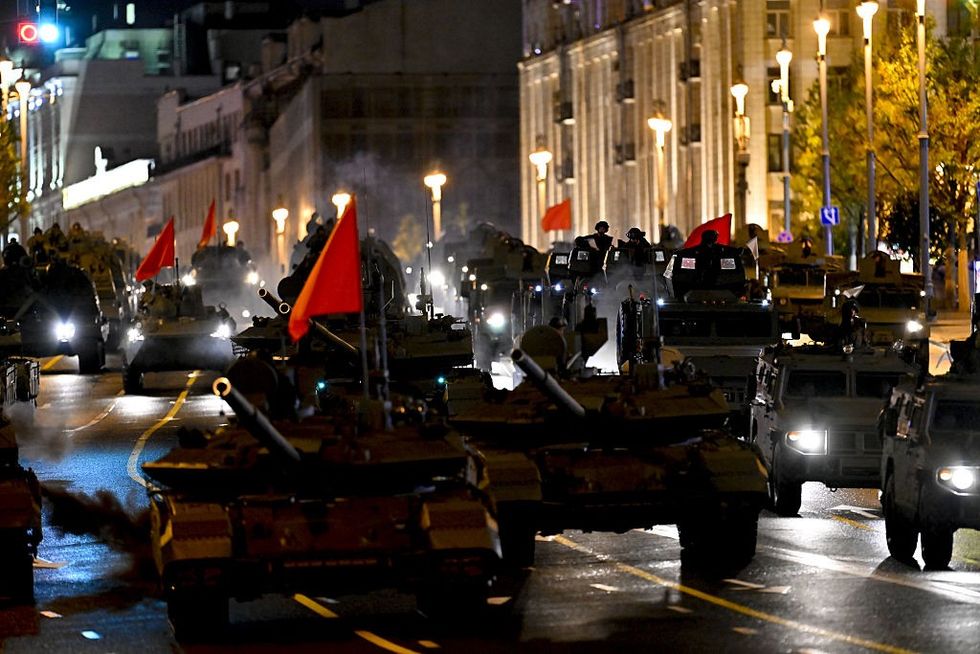
Russian military vehicles are on their way to Red Square as they pass through Tverskaya Street during the rehearsal of the Victory Day military parade
Getty
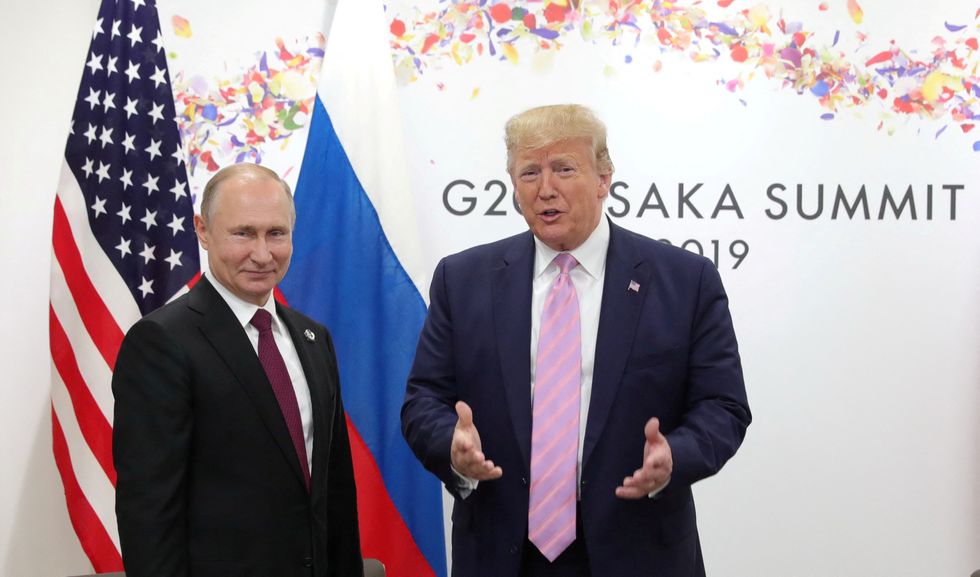 Trump told Putin not to forget the sizeable US military presence in EuropeREUTERS
Trump told Putin not to forget the sizeable US military presence in EuropeREUTERS
President Donald Trump, who says he wants to be remembered as a peacemaker, has repeatedly said he wants to end the "bloodbath" of the more than three-year-long war in Ukraine.
Yesterday, the White House announced it would no longer arbitrate peace negotiations between Ukraine and Russia after Putin refused to sign up to a ceasefire.
Despite this, the war in Ukraine is not going to end "any time soon", according to JD Vance, who told Fox News earlier this week that it is down to the two countries as to how long the war will last.
"[It's] going to be up to the Russians and Ukrainians now that each side knows what the other's terms for peace are. It's going to be up to them to come to an agreement and stop this brutal, brutal conflict," Vance said.
President Zelensky has acknowledged that while Ukraine cannot regain its territories by military force, he noted that formally ceding land would run counter to the country's constitution.
Opposition to giving up land has softened as the war has ground on. Data from the Kyiv International Institute of Sociology (KIIS), showed that in March, about 39 per cent supported territorial concessions, compared with just 10 per cent in May 2022.
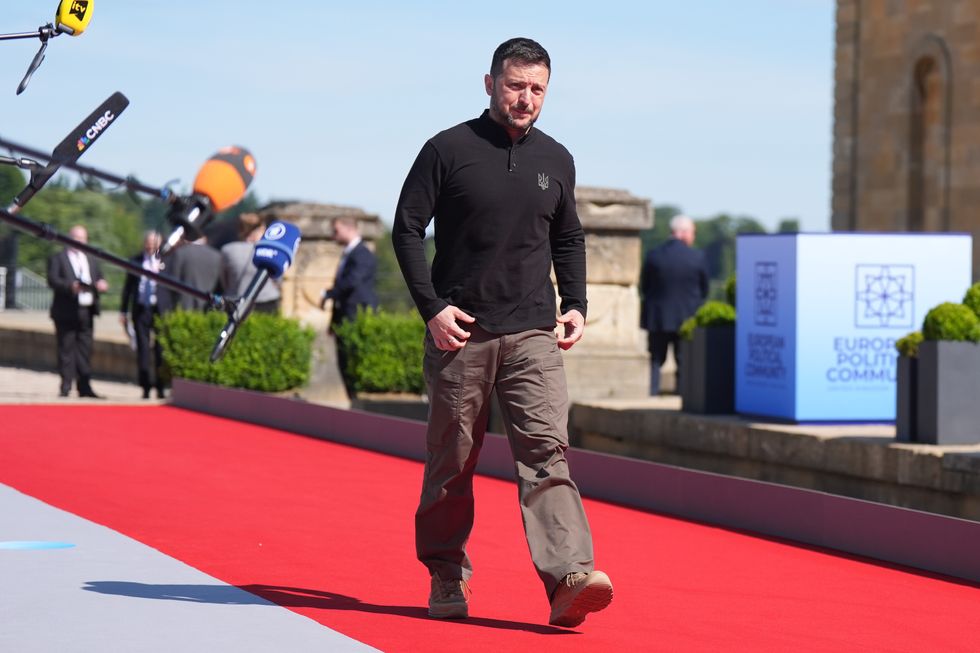 Ukraine President Volodymyr ZelenskyPA
Ukraine President Volodymyr ZelenskyPA
While the death toll remains high, experts have suggested the toll will not deter Vladimir Putin.
Matthews told GB News that any number of deaths will not have any impact because of the lack of information being spread to the population.
He said: "[The number] is not significant at all, because nobody in Russia knows that statistic and the most important thing is that Putin has not actually mobilised his country.
"It remains a volunteer army and fighting in Ukraine, and an army that's being extremely well paid, and it's a sort of career choice.
"So that makes it an entirely different kind of war for Russia. It's people who are signing up for enormous bonuses, his widows and families getting gigantic payouts of three to four million rubles."
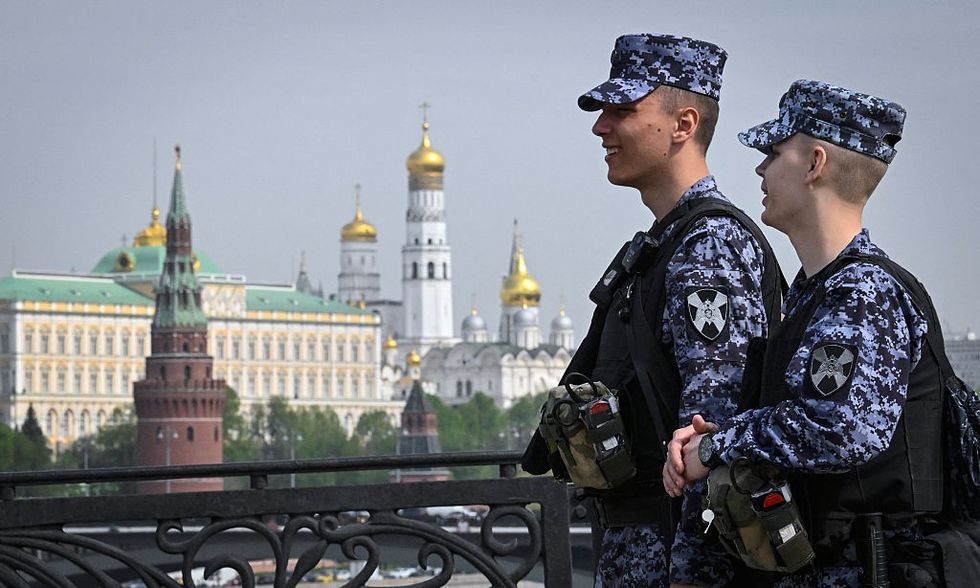
Russian National Guard (Rosgvardia) servicemen patrol a bridge along the Moskva river in front of the Kremlin
Getty
With attractive payments, it is no wonder the army is expanding. In the Russian city of Petrozavodsk, around 100 miles east of its border with Finland, the Kremlin is planning to create a new army headquarters, with military experts warning this is preparing for a wider conflict with Nato.
Ruslan Pukhov, director of the Center for the Analysis of Strategies and Technologies told the Wall Street Journal: "When the troops are back [from Ukraine], they will be looking over the border at a country they consider an adversary.
"The logic of the last decade shows we’re expecting some conflict with Nato."
Russia has increased military spending to more than six per cent of GDP this year, from 3.6 per cent before the war. By comparison, the US spent 3.4 per cent of its GDP on its military last year, and EU countries, on average, spent 2.1 per cent.
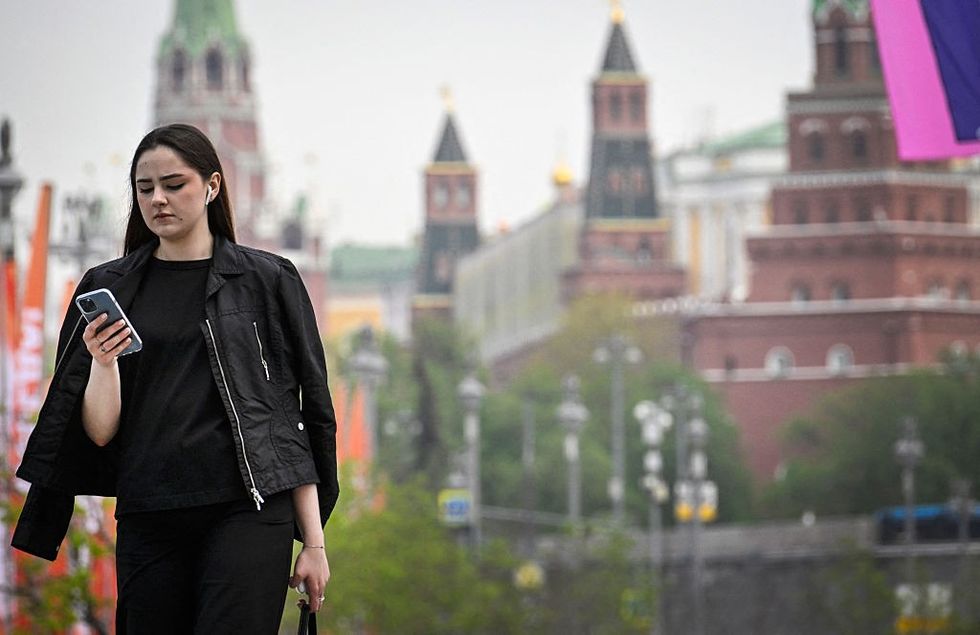
A woman walks in front of the Kremlin in Moscow on April 23, 2025
Getty
Matthews said that the majority of those being drawn into fighting are not from major western cities such as Moscow or St Petersberg, but instead from the poorer, more rural areas to the east of the country.
He said: "The most productive areas of recruitment have been from the poorest areas of the country."
Matthews said that human rights lawyers have told him that the situation is different in the capital of Moscow.
"I was with a very prominent Russian human rights lawyer who lives in Moscow and spends a lot of time travelling around the Russian provinces, representing, among other people, Ukrainian prisoners of war.
"Moscow continues to party and drink Prosecco. Restaurants are full, there's a huge boom in theatre and nightclubs. And there's no sense, whatever that it's the capital of a country of war, war of any kind, much less a sort of existential war."
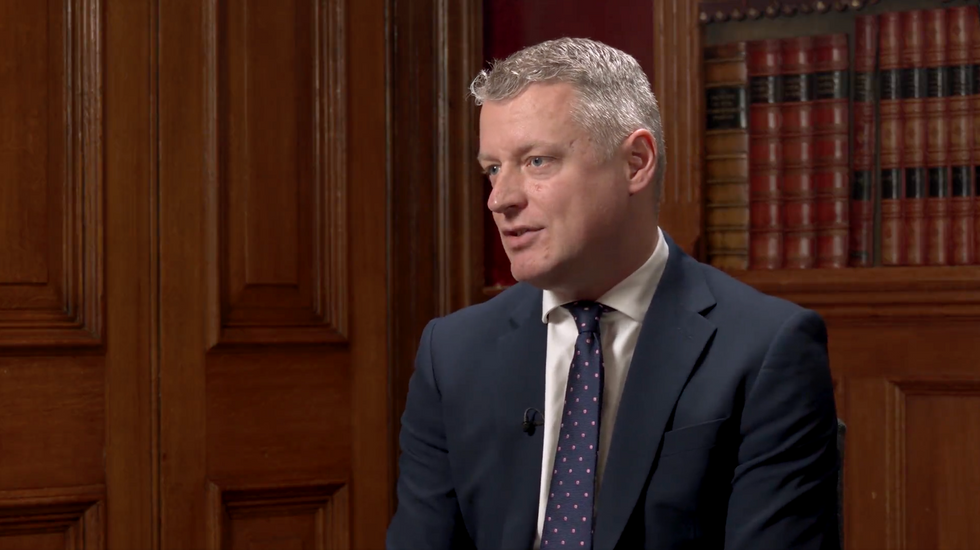
Minister for the Armed Forces, Luke Pollard
GB NewsMinister for the Armed Forces, Luke Pollard, told GB News: "Putin repeatedly shows a complete disregard for human life through his illegal invasion of Ukraine, with the staggeringly high casualty rates among Russian troops providing a clear indication of how little he cares for his own citizens.
"That’s why it’s so important that we continue to step up to support Ukraine to defend its people from Putin’s aggression, and that is why we're spending £4.5billion of support this year - more than ever before.
"That's why we recently announced a £450million military support package to provide equipment including drones, anti-tank mines and radar systems."
